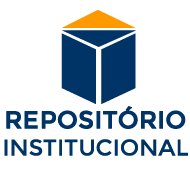Please use this identifier to cite or link to this item:
http://aprender.posse.ueg.br:8081/jspui/handle/123456789/276| Title: | INTELIGÊNCIA ARTIFICIAL: UMA ANÁLISE DE SUA APLICABILIDADE NA ECONOMIA COMO FERRAMENTA DE DESENVOLVIMENTO NO ESTADO DE GOIÁS |
| Authors: | Sousa, Daniel Carneiro Cavalcante, Kelly Cristina dos Reis Reynaldo, Carolina Novaes Xavier de Lima |
| Keywords: | Inteligência artificial Tecnologia Desenvolvimento econômico Agronegócio Agropecuária |
| Issue Date: | Mar-2021 |
| Publisher: | Universidade Estadual de Goiás |
| Abstract: | As tecnologias se consolidaram como importantes aliadas do ser humano em suas mais diversas ocupações. Permitem a automação e otimização de tarefas, melhorias em processos, redução de custos, entre inúmeros outros benefícios. O tempo avança e cada vez mais surgem necessidades de novas formas de melhorar a sociedade e a vida daqueles que a habitam, em diversos ramos como saúde, educação, economia. Essas demandas, fizeram com que inovássemos ao ponto de simular a inteligência humana nas máquinas a fim de resolver tarefas complexas, da mesma maneira que o homem lida com seus problemas, em várias áreas do conhecimento, sendo denominada de: inteligência artificial. Se bem aplicada, essa tecnologia permite novas possibilidades que antes não seriam possíveis com o uso de sistemas convencionais e com excelentes resultados. Nesse sentido, esse trabalho visa analisar a aplicação da inteligência artificial no ramo do desenvolvimento econômico, considerando as maneiras pelas quais ocorrem os seus usos e como isso poderá aprimorar a economia do estado de Goiás. Para isso, a pesquisa buscou dados quantitativos em plataformas públicas para caracterizar a economia goiana e extrair o ramo de maior destaque. Feito isso, obteve-se a agropecuária como o setor mais explorado e a inserção de uma pesquisa bibliográfica permitiu a discussão da aplicação da inteligência artificial nessa categoria. Os resultados apontaram que as aplicações dessa tecnologia podem trazer melhorias em diversas vertentes aos produtores do campo, onde a produtividade, redução de custos, aumento da competitividade e apoio na tomada de decisões foram os principais ganhos citados pelos autores consultados. Portanto, os benefícios expressados simbolizam possíveis avanços no setor agropecuário, podendo produzir efeitos positivos também em outras áreas da sociedade, o que consequentemente tende a impactar e desenvolver ainda mais a economia do estado.___________________________________________________________________________________ Technologies have consolidated themselves as important allies of human beings in their most diverse occupations. They allow the automation and optimization of tasks, process improvements, cost reduction, among countless other benefits. Time goes by and more and more needs are emerging for new ways to improve society and the lives of those who inhabit it, in various fields such as health, education, economy. These demands led us to innovate to the point of simulating human intelligence in machines in order to solve complex tasks, in the same way that man deals with his problems, in various areas of knowledge, being called: artificial intelligence. If well applied, this technology allows for new possibilities that previously would not have been possible with the use of conventional systems and with excellent results. In this sense, this work aims to analyze the application of artificial intelligence in the field of economic development, considering the ways in which its uses occur and how it can improve the economy of the state of Goiás. For this, the research sought quantitative data on public platforms to characterize the economy of Goiás and extract the most prominent branch. That done, agriculture was the most explored sector and the insertion of a bibliographic research allowed the discussion of the application of artificial intelligence in this category. The results showed that the applications of this technology can bring improvements in several aspects to producers in the field, where productivity, cost reduction, increased competitiveness and support in decision making were the main gains mentioned by the consulted authors. Therefore, the benefits expressed symbolize possible advances in the agricultural sector, and may also produce positive effects in other areas of society, which consequently tends to impact and further develop the state's economy. |
| URI: | http://aprender.posse.ueg.br:8081/jspui/handle/123456789/276 |
| Appears in Collections: | Artigos científicos |
Files in This Item:
| File | Description | Size | Format | |
|---|---|---|---|---|
| Monografia Oficial - Daniel UEG.pdf | 846,13 kB | Adobe PDF | View/Open |
Items in DSpace are protected by copyright, with all rights reserved, unless otherwise indicated.
